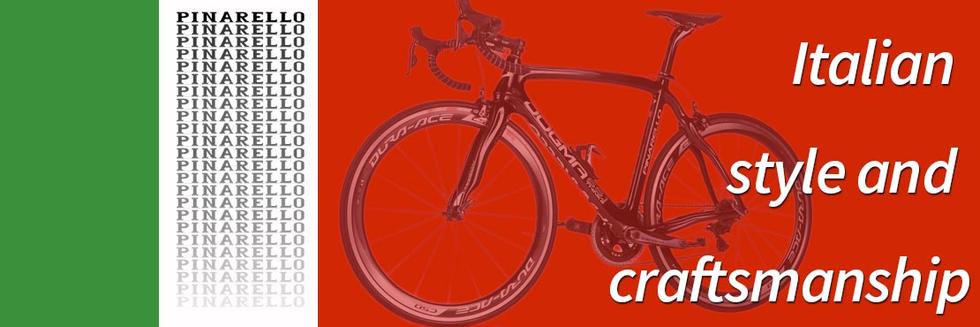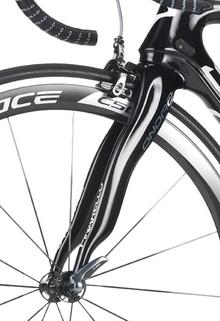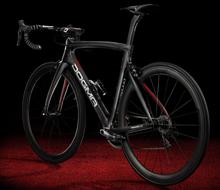Pinarello Bicycles
|
Building bicycles has been a Pinarello family tradition since 1922, the year that Giovanni Pinarello, who became the head of the company, was born. Growing up with a passion for two wheels, Giovanni financed his addiction to racing by building frames. He won over 60 titles as an amateur and in 1947 became a professional. In 1953, after winning 5 races as a professional, Giovanni was asked to pass his spot in the Giro d'Italia (Italy's 3-week stage race) to a more highly touted young star named Pasqualino Fornara. As inducement to give up his spot, Giovanni was offered the then princely sum of 100,000 lire by his sponsor Bottecchia. His misfortune led to the legend that is Pinarello bicycles. Pinarello's finely crafted bicycles were highly sought after, quickly appearing under a national amateur team, Padovani, in 1957; and then a professional team, Mainetti in 1960. Victories soon followed and Pinarello's reputation for craftsmanship led to a long line of professional victories. American Alexi Grewal won a gold medal aboard a Pinarello at the 1984 Los Angeles Olympics. Even more recognizable was Miguel Indurain, who won 5 Tours de France, 2 Giro d'Italias, an Olympic victory, a world time trial championship, an hour record and many other important events on his Pinarellos. Today, the ProTour Caisse d'Epargne team rides Pinarello . The process continues with Pinarello's Expandable Polystyrene System, or EPS, for carbon frames. The increased compaction allows for a stronger, more rigid frame that translates into less energy loss due to frame flex. Compacting the carbon fibers also increases weight savings, not to mention structural integrity as a result of fewer imperfections and voids in the carbon structure.
|
|
|

 With their distinctive designs and fine-tuned racing pedigree, Pinarello bicycles stand out from the pack.
With their distinctive designs and fine-tuned racing pedigree, Pinarello bicycles stand out from the pack. Giovanni Pinarello invested his 100,000 lire in a bicycle store in Treviso in 1952.
Giovanni Pinarello invested his 100,000 lire in a bicycle store in Treviso in 1952.
 Pinarello's Dogma F8 takes these processes to the pavement with a svelte design proven in the world's toughest races. An asymmetric frame design ensures frame strength where it is most needed and feathery lightness everywhere else. Paired with the Onda 2 fork that's aerodynamically superior thanks to a drag-eliminating design where the tire intersects with the fork crown, the Dogma is nearly unstoppable, as evinced by its crowning performances on the world stage.
Pinarello's Dogma F8 takes these processes to the pavement with a svelte design proven in the world's toughest races. An asymmetric frame design ensures frame strength where it is most needed and feathery lightness everywhere else. Paired with the Onda 2 fork that's aerodynamically superior thanks to a drag-eliminating design where the tire intersects with the fork crown, the Dogma is nearly unstoppable, as evinced by its crowning performances on the world stage.